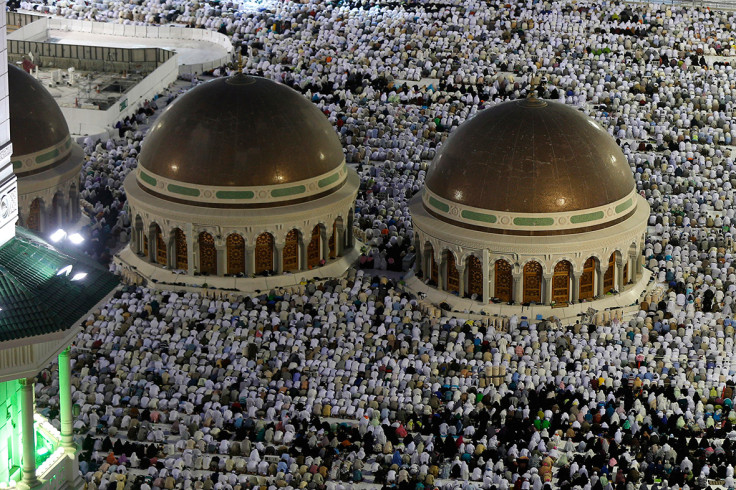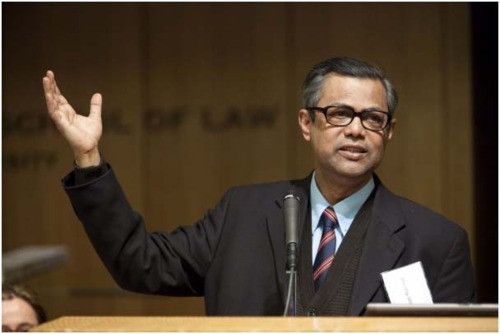Hajj 2014: Koran Verses, Animal Slaughtering and Allegations of Corruption

Hajj, the annual pilgrimage to Mecca, is one of the most important events for Muslims around the world.
The pilgrimage, which this year will take place from 1-6 October, will attract hundreds of thousands of people who will go to Mecca, in Saudi Arabia, to take part in one of Islam's five pillars of faith.
Hajj occurs from the 8th to 12th of Dhu al-Hijjah, the last month of the Islamic calendar. The same ritual performed in other days is known as "Umrah".
Hajj is one of the biggest gatherings worldwide; this year, nearly 2.5 million pilgrims are expected to arrive in Mecca.
Hajj and Islam
Sharia scholar Hasan Mahmud, who is the general secretary of Canada-based association Muslims Facing Tomorrow, which opposes extremism, fanaticism and violence in the name of religion, told IBTimes UK Hajj was an "ancient ritual that Islam internalised: tribes used to rotate naked around the Ka'aba, the 'house of God', that was built by Prophet Abraham. However, Islam banned that and made it only for Muslims".
"The Hajj is a demonstration of the solidarity of the Muslims and their submission to God," Mahmud said. "Hajj is important because it is an opportunity to purify soul and achieve gains in hereafter."

Hajj and Poor People
In the Hajj and Umrah Pilgrimage section of the Koran is written: " You shall observe the complete rites of Hajj and 'Umrah for God. If you are prevented, you shall send an offering, and do not resume cutting your hair until your offering has reached its destination. If you are ill, or suffering a head injury you shall expiate by fasting, or giving to charity, or some other form of worship."
Every Muslims should do the pilgrimage to Mecca at least once in their lifetime. However, it is very unlikely for poor people to be able to leave their families for days and afford transportation and accommodation in Saudi Arabia.
"Poor people are deprived of the opportunity to perform Hajj. However, rich people who already performed the pilgrimage should help poor people to do the same," Mahmud said.
Hajj is Huge Business in Saudi Arabia
Last year more than two million people observed Hajj. "This year the number may reach nearly 2.5 million," Mahmud said.
He alleged: "Hajj brings in billions of dollars into Saudi Arabia each year and sometimes it is abused: Corrupt politicians of Muslim countries repeatedly perform Hajj and Umrah to gain their popularity.
"Companies who arrange Hajj for people often charge too much and sometimes vanish after taking the money."
Alternative to Animal Slaughtering
At the end of Hajj, Muslims slaughter animals to celebrate Eid Al-Adha, the Feast of Sacrifice. It was estimated that at least 770,000 sheep were slaughtered last year. Goats, cows and camels are also scarified and the meat is then distributed to poor people.
"Slaughtering animals is obligatory only in Hajj in Mecca, but it is widely done in Muslim countries on Hajj day," Mahmud said. "Alternative thinking is emerging in Muslim society about Hajj.
"For example, few years ago Bangladesh-based Islamic organisation Hakkani Mission - Hakkani means a high level of sacrifice, intended as helping ultra-poor - took up an alternate process of Qurbani, word which translates as sacrifice, in this case intended as sacrifice of animals.
"Hakkani collect slaughter money and gift female cows and goats to ultra-poor so that they become financially solvent by the offspring of the cow and goat. Hakkani rehabilitated about 400 families this wonderful way and is continuing."
Hajj was Banned for Seven Years
The widespread wars of Wahabis prompted authorities to ban Hajj from 1803 and 1809, Mahmud said.
The term "Wahabis" comes from Abdul Wahab, who Mahmud described as "the forefather of today's Saudi king family". "He fought wars for Islamic 'reform movement' to restore 'pure monotheistic worship' or an 'extremist pseudo-Sunni ' movement," Mahmud said.
"Ultimately his progeny won and established the kingdom of Saudi Arabia."
© Copyright IBTimes 2025. All rights reserved.






















